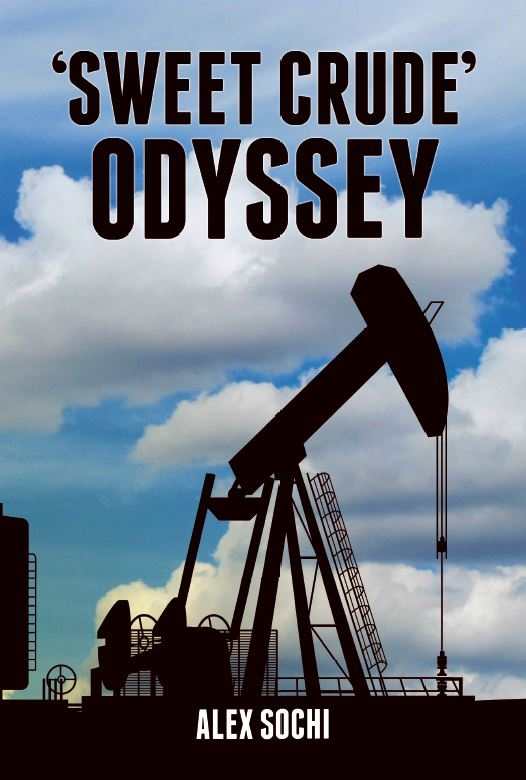
'Sweet Crude' Odyssey
The seedy underbelly of oil dependence is directly confronted in this novel about exploitation.
A novel that exposes the exploitation of developing nations, Alex Sochi’s ’Sweet Crude’ Odyssey follows a young man’s descent into the horrific Nigerian oil industry and black market, casting light upon modern evils through a narrative that helps humanize a conflict that doesn’t often make the news.
Bruce has been having problems with work, as well as with his drug-addled girlfriend. An intelligent man, his dangerous past and knowledge of the Nigerian oil industry have piqued the interest of some British “businessmen” who wish to employ him in their operation. Approached by a scheming Londoner with a Cockney accent, Bruce is offered a proposal that seems quite simple: help secure conveniently “lost” oil to be sold on the black market at a discounted rate, and make extraordinary amounts of money.
The deal seems too good to be true, and soon is proved to be. On a trip to London to finalize his position in the organization, Bruce is given a dossier on himself, along with pictures of his family—insurance against betraying his bosses. Intertwined with this tale of corporate corruption is the story of Bruce himself, a complex, hard-living man who has a troubled history with women. During his multiple trips to London, he meets a young doctor named Kathy, and his view of life and its possibilities begins to change.
There are some technical problems within the novel that may distract attentive readers, including typographical errors and verb tense disagreement. The unfolding plot itself can feel fragmented and jumbled as locations and characters change rapidly. Perhaps this is intentional, meant to impart a sense of the fast-paced, murky existence of these corporate mercenaries, as Bruce becomes entrenched in an operation of unfathomable greed and violence. Dialogue, particularly the use of pidgin English, creates a world both foreign and fully realized.
As the settings of London and Nigeria come to be more divided as they are defined, so too does Bruce’s moral understanding of the situation. When the complex desires of his professional and personal lives come into conflict, he is forced to reconsider his values—namely, whether he is willing to ignore his moral qualms in favor of monetary gain. Bruce’s struggle comes to symbolize the first world’s own predicament concerning the exploitation of third-world resources: on the one hand, immensely profitable; on the other, ethically ambiguous.
Exploring an area of importance in a world powered by fossil fuels, the seedy underbelly of dependence on oil is directly confronted here. The exploitative nature of the oil industry almost guarantees the illicit activities that grow around it. Those unseemly activities are given a human face by the deeply flawed but still empathetic Bruce, exposing the struggle occurring every day away from the shielded eyes of developed countries. Though somewhat unpolished, ’Sweet Crude’ Odyssey is a gem of a novel, revealing the hidden world of chaos and corruption that makes life in developed countries possible.
Reviewed by
Alex Franks
Disclosure: This article is not an endorsement, but a review. The publisher of this book provided free copies of the book and paid a small fee to have their book reviewed by a professional reviewer. Foreword Reviews and Clarion Reviews make no guarantee that the publisher will receive a positive review. Foreword Magazine, Inc. is disclosing this in accordance with the Federal Trade Commission’s 16 CFR, Part 255.

